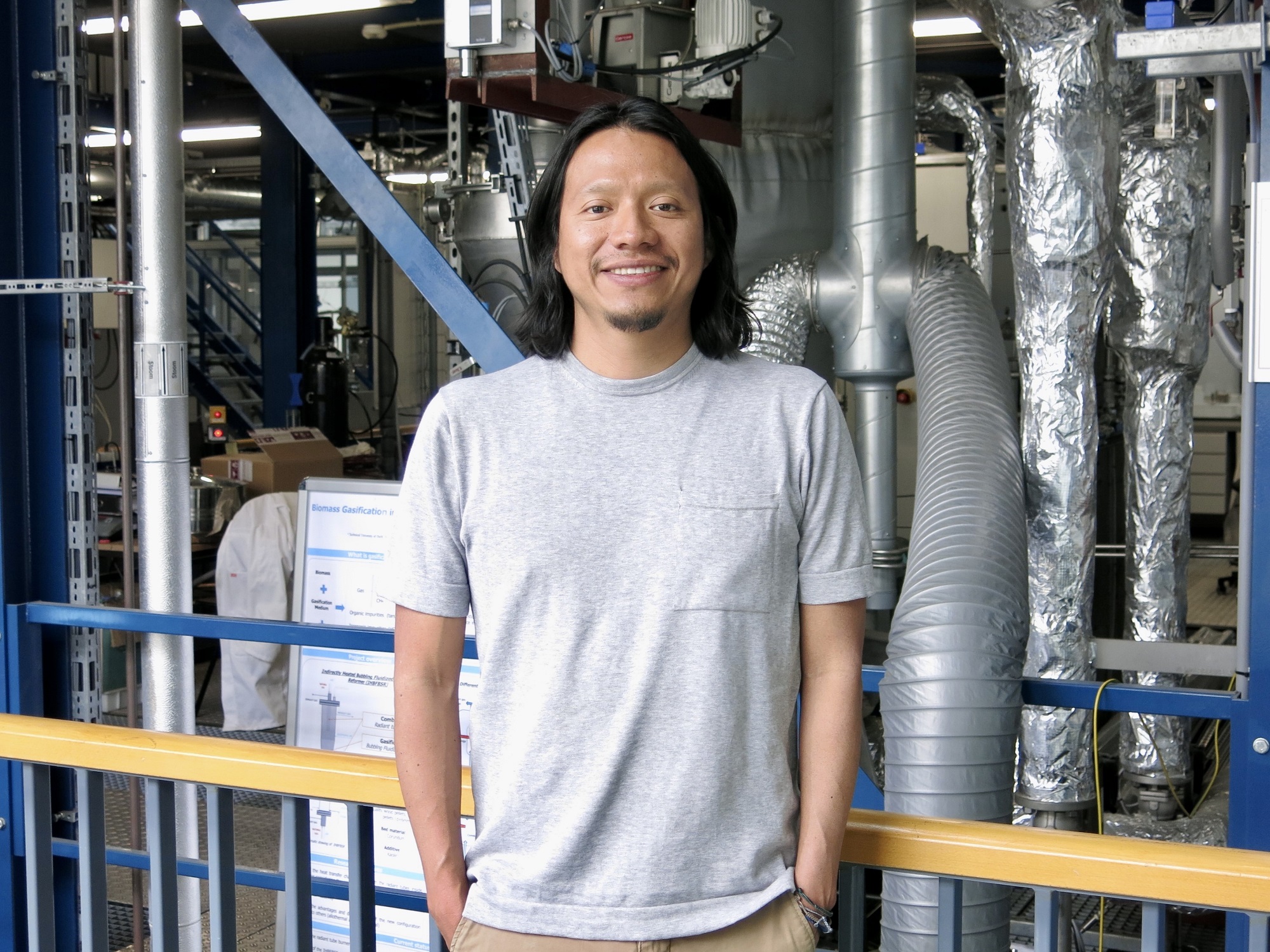Who are the people who study or work at TU Delft? We meet them in Humans of TU Delft. This time: Luis Cutz tells us how waste is accelerating the green energy transition.
Assistant Professor Luis Cutz: “What I also try to incorporate in my research is making sure that the designs that we develop here can be implemented in other parts of the world.” (Photo: Heather Montague)
English only
“My father is a chemical engineer and has worked his whole life in the sugar industry in Central America. When I was a kid, he used to take me to these type of plants for tours. Back then they were already using thermochemical processes to convert sugarcane into combined heat and power, so it was already a renewable form of energy. I think since I was young, I was very inclined towards biomass and chemical engineering.
I started at TU Delft as a postdoctoral researcher in 2018 in the Large-Scale Energy Storage section (Process & Energy department – 3mE Faculty) and have been an Assistant Professor for about eight months now. We focus on reactor and process design and we mainly work with thermochemical conversion processes. Those are processes that require heat to convert a material into useful products. In my research group, we work with two materials, one of which is biomass. That is any sort of living or recently living material, whether naturally grown or bred, but also includes the residue. We mainly focus on the residues that come from agricultural, forestry, industrial, and municipal waste.
So we have biomass and we develop innovative thermochemical technology to convert it into solid, liquid, and gaseous fuels. Solid fuels can be used in, for example, pellet boilers to heat homes or in power plants if you think on a large scale. But some of the solid materials that we produce from reactors can also be used as soil amendment or in lithium-ion batteries like in the case of biochar. With the liquid fuels, one of our most recent projects funded by NWO is called Clean Shipping where we use low-grade biomass to produce transport fuels for the maritime sector.
For the gaseous fuels we have a pilot scale reactor here at the Process & Energy department where we can put biomass in and produce a gaseous fuel which can be used as a kind of synthetic gas. Or you can grade it into chemicals, for example, methanol. We have gasified wood chips, miscanthus, and last year we turned polyolefins from post-consumer waste plastic into a gaseous fuel and chemicals.
It is difficult for some people to imagine, but biomass and plastic have similar compositions and structural similarities because they are made of polymers. In the case of biomass, you have cellulose and lignin (e.g. key components of trees) which are polymers, like long chains of building blocks made of these materials. In the case of plastic it’s the same, but these building blocks are called monomers. So what we try to do is use thermochemical technologies to take waste plastic and convert it into new plastic. If you can do that, then you really kind of close the circle and you don’t need to extract fossil fuels anymore.
‘One of the main challenges of clean cooking is financing and the struggle to scale up’
I am also excited to work on sustainable development and that’s the reason I collaborate with TU Delft Global Initiative. In the western world, of course we need to develop these technologies to boost the greener transition. But what I also try to incorporate in my research is making sure that the designs that we develop here can be implemented in other parts of the world and take into account social aspects. For example, we recently started a project with Mimi Moto and African Clean Energy, two Dutch companies working on clean cooking devices. In certain parts of the world, people still rely on traditional biomass for cooking which they burn on open fires. This typically happens indoors and as you can imagine this releases a lot of particulate matter which can cause respiratory diseases. The idea is to create devices that can be adopted by households while improving the combustion of biomass and reducing particulate matter.
These companies are already advanced in this, but one of the main challenges of clean cooking is financing and the struggle to scale up. So we are looking at other ways that might help to make them more profitable. For example, here we develop thermochemical technologies that are capable of producing several products. If you’re able to produce several products, then companies could profit from different markets. In the case of the cooking stoves, the research question that we are investigating at the moment is if we can stop the cooking process at a certain time and produce high-quality biochar.
If we are able to do that, perhaps the households that are creating this biochar, can store it because it’s highly stable carbon material. Then later on they can put it in the soil or they can sell it to companies that are interested in using these renewable materials. If these biomass-based processes running in the Global South can produce high quality materials, it can be a benefit for the environment by mitigating greenhouse gas (GHG) emissions, the economy by providing extra income, and society by boosting rural development.”
Want to be featured in Humans of TU Delft? Or do you know someone with a good story to tell? Send us an e-mail at humansoftudelft@gmail.com
Heather Montague / Freelance writer



Comments are closed.